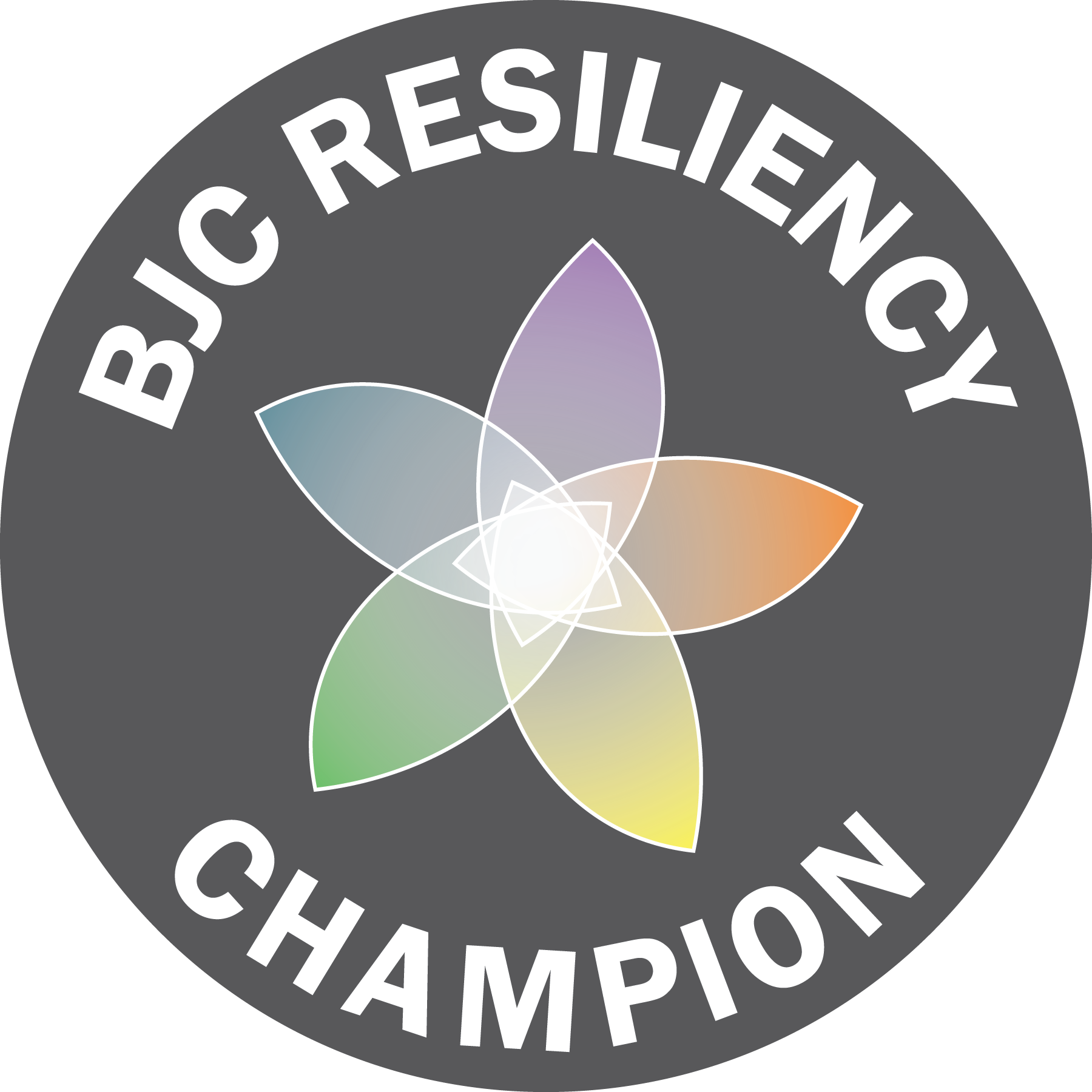 Leading With Resiliency
Leading With Resiliency
Healthcare is a complex field with multiple stressors and constant change. We can have a positive impact on BJC employees and our culture by providing BJC employees with the behaviors and skills necessary to increase their resiliency.
Leader-Led Huddle Activities
What Is Your Why?
The Leading With Resiliency Care Package activities help leaders support employees while building their resilience. Aligned to the BJC Values, the activities reinforce our mission of caring for our patients, their families, and for the health of our community, including our coworkers and ourselves. Choose activities that meet your team's current needs to build their resiliency.

Resiliency involves consistent and repeated practices. For a leader wanting to improve resiliency in their staff this will mean:
• Supporting employees’ sense of meaning and value in their work
• Promoting a culture where self-care is valued
• Supporting team relationships
• Modeling, encouraging, and coaching for rational thinking
• Highlighting the positive
Building a Team Culture of Resiliency
Creating and maintaining a culture of resiliency involves consistent and persistent practices to form habits. By incorporating these practices into your daily workflow, you will help your team be more resilient. Resilient teams find flexible and effective solutions when confronted with adversity.
More than a group of resilient individuals, a resilient team:
• Gains a sense of shared meaning and value in their work
• Cares for each other to support a healthy work-life balance
• Strives to continuously strengthen workplace relationships
• Appreciates the interconnectedness of various roles individuals play in the team
• Observes and celebrates the good around them
In addition to habit formation, BJC has a group of Resiliency Champions across the system that facilitate resiliency with their teams. Consider a member or two from your team to step into a Champion role with you for your team.
Use the Team Resiliency Assessment in Saba to evaluate your team's resiliency and develop an action plan.
Resiliency at your HSO
Building a culture of resiliency within the organization requires support and action at all levels - the individual employee level, the team or department level, and the system or organization level. Like team resilience, organizational resiliency is more than a group of resilient teams. Organizational resiliency creates the ability to anticipate, respond, and adapt to adversity at an organizational level. If you believe your organization would benefit from this, explore our resources and requirements for HSO Resiliency.
View Implementing Resiliency across an HSO to consider implementation steps for your discipline area.
RESILIENCY RESOURCES AT BJC
BJC RESILIENCY PROGRAM

One Page Overview
View the Program Page in Saba
RESILIENCY CHAMPIONS

BJC Resiliency Champion Program Overview
List of BJC Resiliency Champions
BUTTERFLY EFFECT

Printable Guide
Congratulations Award
CHAMPION AND ROLE MODEL OF THE YEAR

2017 - Amy Ogle
2018 - Bonita Harmon
2019 - Tammy Puhlmann
2020 - Eileen Spinner and Andrea Tritinger
2021 - Cari Frus and Claire Hussey
2022 - Lara Kerwin and Emily Owen
2023 - Karin Lowery and Kayla Hollingshead
RESILIENCY IN VIVA ENGAGE
If you've joined BJC's social media platform Viva Engage, join us in the BJC Resiliency group!WHAT IS RESILIENCY?

Resiliency is the ability to adapt and thrive in the face of adversity. Resilient people “bounce back" from difficult experiences.
Resilient individuals are flexible, open to change, and willing to learn. Resiliency can improve both physical and mental health.
There are many aspects of resiliency. At BJC, we have a model we use for talking about and teaching resiliency that has five components. The five components of our model include:
 Meaning
Meaning
Knowing your values and having a strong sense of purpose helps ground you and guide you during difficult times. When we are not able to or choose not to live by our values we feel dissatisfied and unhappy.
 Self-Care
Self-Care
You have to take care of your body, mind, and spirit to be able to face life’s challenges. You cannot care for others or be at your best when you are unhappy, constantly under stress, or exhausted.
 Relationships
Relationships
Relationships that offer care and support are the GREATEST contributor to resiliency. Positive relationships are necessary for our well-being and contribute to improved health.
 Self-Awareness
Self-Awareness
The way we think about events determines how we react to them. When we learn to think about events rationally and can separate our “in the moment” emotions from true facts, we increase our ability to deal with difficult circumstances and reduce our suffering.
 Optimism
Optimism
Humans have a natural negativity bias that stems from our desire to avoid danger. This means we often either overlook the positive or take the positive for granted. Learning to notice and recognize the positive leads to rational optimism. This type of optimism contributes to greater life satisfaction and happiness, helps us deal with challenges, and helps us connect with others.
Visit the pages on this site for activities, articles, and videos related to these topics. You can find additional facilitated activities on the Champion page.

 Leader
Leader
